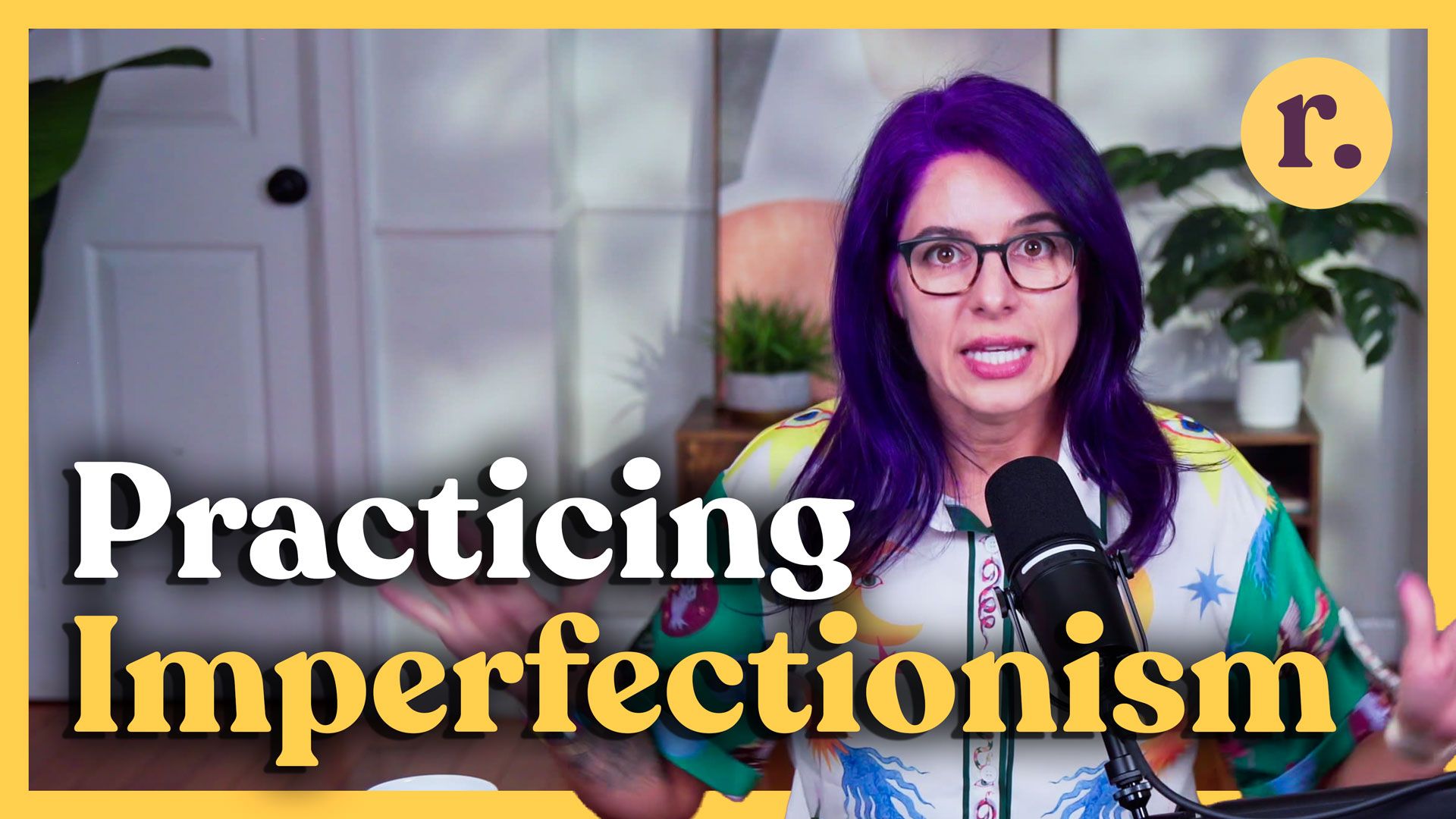Episode 13 - Practicing Imperfectionism | How to Loosen Perfectionism’s Grip – Entreé
Oct 15, 2025
Perfectionism sneaks into the tiniest corners of life—triple-checking an email, replaying a conversation, or beating yourself up for missing a workout. It can look like discipline or drive, but underneath, it’s often fear—of rejection, loss of control, or not being enough.
In this episode of the Relish Podcast, host Alyssia Sheikh breaks down what perfectionism really is: a protective pattern the brain learns to avoid pain. You’ll learn how perfectionism forms, how it manifests, and—most importantly—how to loosen its grip without losing your strengths. Drawing on neuroscience, psychology, and personal stories, Alyssia shares ways to turn rigidity into resilience and presence.
✨ In this episode, you’ll learn:
- What perfectionism really is—and why it’s not a personality trait, but conditioning
- The three main types of perfectionism (self-oriented, other-oriented, socially prescribed)
- How shame and all-or-nothing thinking reinforce the perfectionism loop
- Why “streaks” and rigid routines often backfire (and how to reset without shame)
- Tools for practicing imperfectionism: self-compassion, “good enough,” and flexible thinking
- The neuroscience of why perfectionism feels safe—and how to rewire it through awareness and fluidity
💭 Reflection: Where in your life does perfectionism show up—and what would it look like to practice imperfectionism this week? Maybe it’s sending the email without rereading it five times or taking a break without guilt.
Links to Relevant Episodes:
Follow & Connect:
- Join the Newsletter
- IG: @alyssiasheikh
- TikTok: @alyssiasheikh
- YouTube: Alyssia Sheikh
- Email me: [email protected]
- Call our hotline and leave a voicemail! (213) 632-9972
- Book a Self-Trust Session with Alyssia
- The Hoffman Institute (Alyssia is a Hoffman Process teacher; podcast is not affiliated)
Links & Resources Mentioned:
- Curran, T. & Hill, A. (2019). Perfectionism Is Increasing Over Time: A Meta-Analysis (Psychological Bulletin): https://www.apa.org/pubs/journals/releases/bul-bul0000138.pdf
-
Flett & Hewitt (2002). “Perfectionism and Maladjustment: An Overview of Theoretical, Developmental, and Treatment Issues.” APA PsycNet / American Psychologist. https://psycnet.apa.org/record/2002-02485-001?doi=1
-
Hill & Curran (2016). “Perfectionism and Burnout in Employees: The Mediating Role of Anxiety and Exhaustion.” Personality and Individual Differences. https://www.researchgate.net/publication/279191467_Multidimensional_Perfectionism_and_Burnout_A_Meta-Analysis
-
Fry & Debats (2009). “Perfectionism and Health: A 7-Year Longitudinal Study.” Personality and Individual Differences. https://pubmed.ncbi.nlm.nih.gov/19383652/
- Frost, R.O., Marten, P., Lahart, C., & Rosenblate, R. (1990). The Dimensions of Perfectionism (Cognitive Therapy & Research): https://doi.org/10.1007/BF01172967
- Hewitt, P.L., Flett, G.L. (1991). Perfectionism in the Self and Social Contexts: Conceptualization, Assessment, and Association With Psychopathology: https://psycnet.apa.org/record/1991-17214-001
- Neff, K.D. (2011). Self-Compassion: The Proven Power of Being Kind to Yourself: https://amzn.to/3Kypnct
- Brené Brown (2010). The Gifts of Imperfection: https://amzn.to/4oBEIqX
- Verplanken, B., & Roy, D. (2016). Empowering Interventions Through Habit Discontinuity (Frontiers in Psychology): https://www.sciencedirect.com/science/article/pii/S0272494415300487
- Kristen Neff TedTalk: The Space Between Self-Esteem and Self Compassion: https://youtu.be/IvtZBUSplr4
Stay connected!
Want mindfulness tools and podcast updates delivered to your inbox? Join the community for practices, stories, and inspiration to keep you grounded.
We hate SPAM. We will never sell your information, for any reason.

